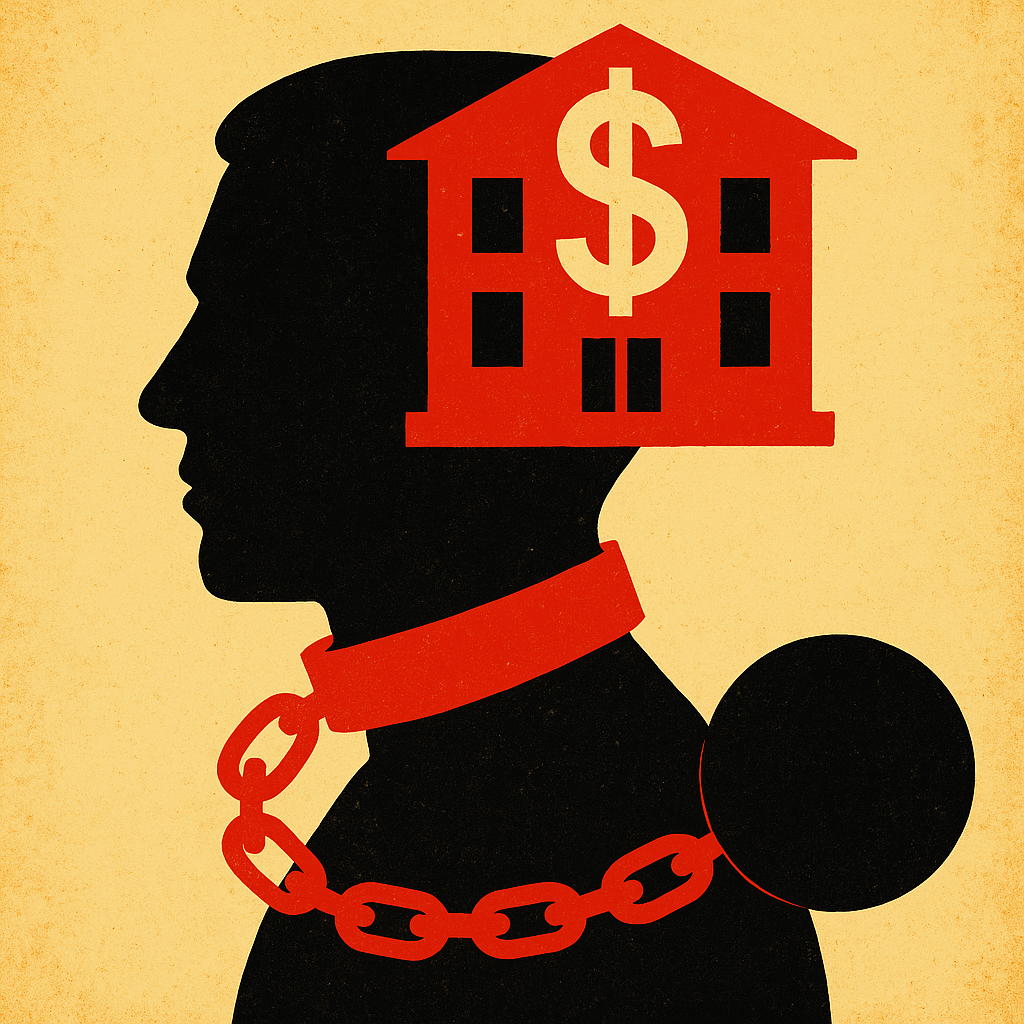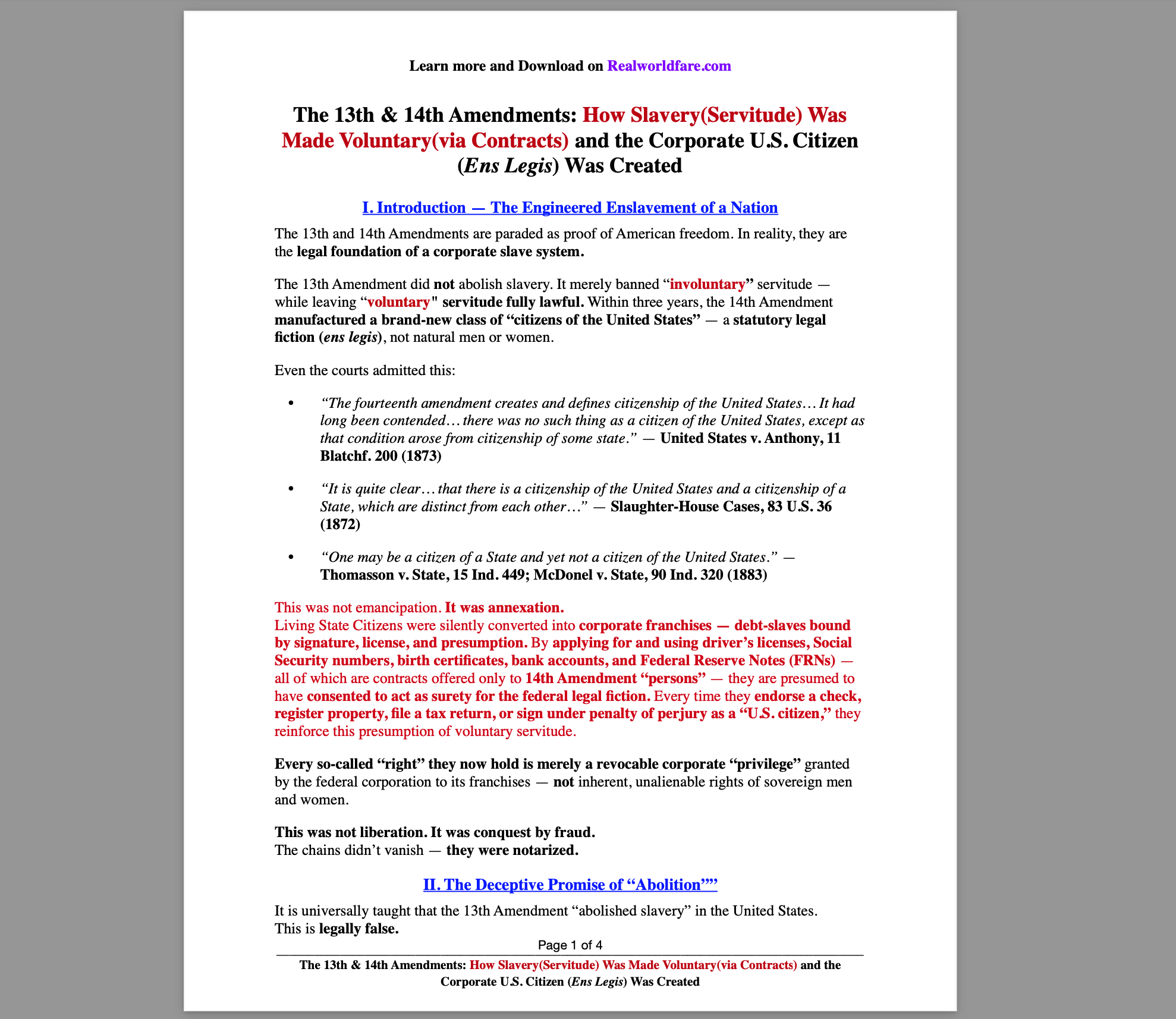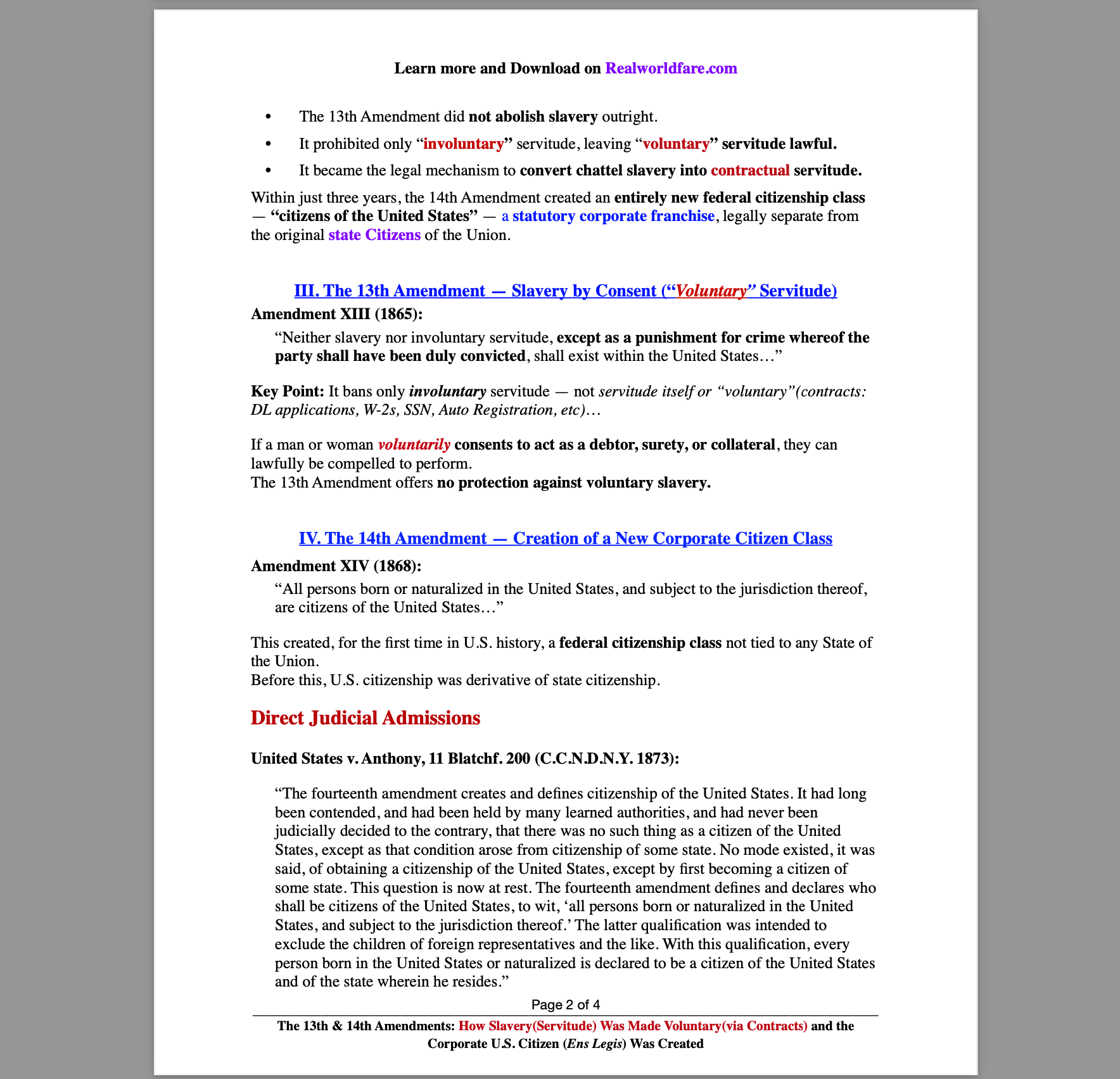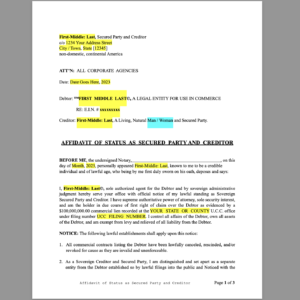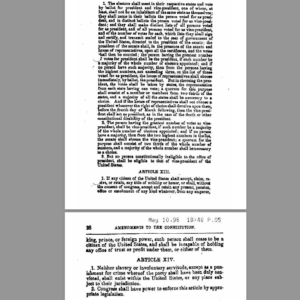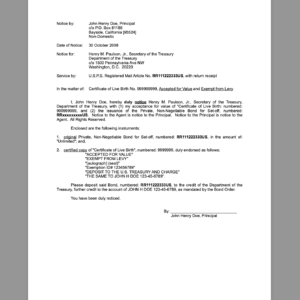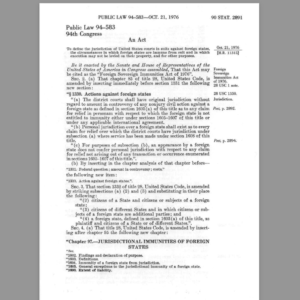I. Introduction — The Engineered Enslavement of a Nation
The 13th and 14th Amendments are paraded as proof of American freedom. In reality, they are the legal foundation of a corporate slave system.
The 13th Amendment did not abolish slavery. It merely banned “involuntary” servitude — while leaving “voluntary” servitude fully lawful. Within three years, the 14th Amendment manufactured a brand-new class of “citizens of the United States” — a statutory legal fiction (ens legis), not natural men or women.
Even the courts admitted this:
- “The fourteenth amendment creates and defines citizenship of the United States… It had long been contended… there was no such thing as a citizen of the United States, except as that condition arose from citizenship of some state.” — United States v. Anthony, 11 Blatchf. 200 (1873)
- “It is quite clear… that there is a citizenship of the United States and a citizenship of a State, which are distinct from each other…” — Slaughter-House Cases, 83 U.S. 36 (1872)
- “One may be a citizen of a State and yet not a citizen of the United States.” — Thomasson v. State, 15 Ind. 449; McDonel v. State, 90 Ind. 320 (1883)
This was not emancipation. It was annexation.
Living State Citizens were silently converted into corporate franchises — debt-slaves bound by signature, license, and presumption. By applying for and using driver’s licenses, Social Security numbers, birth certificates, bank accounts, and Federal Reserve Notes (FRNs) — all of which are contracts offered only to 14th Amendment “persons” — they are presumed to have consented to act as surety for the federal legal fiction. Every time they endorse a check, register property, file a tax return, or sign under penalty of perjury as a “U.S. citizen,” they reinforce this presumption of voluntary servitude.
Every so-called “right” they now hold is merely a revocable corporate “privilege” granted by the federal corporation to its franchises — not inherent, unalienable rights of sovereign men and women.
This was not liberation. It was conquest by fraud.
The chains didn’t vanish — they were notarized.
II. The Deceptive Promise of “Abolition””
It is universally taught that the 13th Amendment “abolished slavery” in the United States.
This is legally false.
- The 13th Amendment did not abolish slavery outright.
- It prohibited only “involuntary” servitude, leaving “voluntary” servitude lawful.
- It became the legal mechanism to convert chattel slavery into contractual servitude.
Within just three years, the 14th Amendment created an entirely new federal citizenship class — “citizens of the United States” — a statutory corporate franchise, legally separate from the original state Citizens of the Union.
III. The 13th Amendment — Slavery by Consent (“Voluntary” Servitude)
Amendment XIII (1865):
“Neither slavery nor involuntary servitude, except as a punishment for crime whereof the party shall have been duly convicted, shall exist within the United States…”
Key Point: It bans only involuntary servitude — not servitude itself or “voluntary”(contracts: DL applications, W-2s, SSN, Auto Registration, etc)…
If a man or woman voluntarily consents to act as a debtor, surety, or collateral, they can lawfully be compelled to perform.
The 13th Amendment offers no protection against voluntary slavery.
IV. The 14th Amendment — Creation of a New Corporate Citizen Class
Amendment XIV (1868):
“All persons born or naturalized in the United States, and subject to the jurisdiction thereof, are citizens of the United States…”
This created, for the first time in U.S. history, a federal citizenship class not tied to any State of the Union.
Before this, U.S. citizenship was derivative of state citizenship.
Direct Judicial Admissions
United States v. Anthony, 11 Blatchf. 200 (C.C.N.D.N.Y. 1873):
“The fourteenth amendment creates and defines citizenship of the United States. It had long been contended, and had been held by many learned authorities, and had never been judicially decided to the contrary, that there was no such thing as a citizen of the United States, except as that condition arose from citizenship of some state. No mode existed, it was said, of obtaining a citizenship of the United States, except by first becoming a citizen of some state. This question is now at rest. The fourteenth amendment defines and declares who shall be citizens of the United States, to wit, ‘all persons born or naturalized in the United States, and subject to the jurisdiction thereof.’ The latter qualification was intended to exclude the children of foreign representatives and the like. With this qualification, every person born in the United States or naturalized is declared to be a citizen of the United States and of the state wherein he resides.”
Slaughter-House Cases, 83 U.S. 36 (1872):
“It is quite clear, then, that there is a citizenship of the United States and a citizenship of a State, which are distinct from each other and which depend upon different characteristics or circumstances in the individual.”
United States v. Cruikshank, 92 U.S. 542 (1875):
“We have in our political system a Government of the United States and a government of each of the several States. Each one of these governments is distinct from the others, and each has citizens of its own who owe it allegiance, and whose rights, within its jurisdiction, it must protect. The same person may be at the same time a citizen of the United States and a Citizen of a State, but his rights of citizenship under one of these governments will be different from those he has under the other.”
Thomasson v. State, 15 Ind. 449; Cory v. Carter, 48 Ind. 327; McDonel v. State, 90 Ind. 320 (1883):
“One may be a citizen of a State and yet not a citizen of the United States.”
“Citizens” (1906), 4 Dec. Dig. ’06, p. 1197, sec. 11:
“The first clause of the fourteenth amendment of the federal Constitution made negroes citizens of the United States, and citizens of the state in which they reside, and thereby created two classes of citizens, one of the United States and the other of the state.”
Tashiro v. Jordan, 201 Cal. 236 (1927):
“That there is a citizenship of the United States and a citizenship of a state, and the privileges and immunities of one are not the same as the other is well established by the decisions of the courts of this country.”
Crosse v. Board of Supervisors of Elections, 221 A.2d 431 (1966):
“…both before and after the Fourteenth Amendment to the federal Constitution, it has not been necessary for a person to be a citizen of the United States in order to be a citizen of his state.”
Jones v. Temmer, 829 F. Supp. 1226 (D. Colo. 1993):
“The privileges and immunities clause of the Fourteenth Amendment protects very few rights because it neither incorporates any of the Bill of Rights nor protects all rights of individual citizens… Instead, this provision protects only those rights peculiar to being a citizen of the federal government; it does not protect those rights which relate to state citizenship.”
V. The 14th Amendment Citizen Is an Ens Legis (Legal Fiction)
Black’s Law Dictionary:
“Ens legis — A creature of the law; an artificial being, as contrasted with a natural person.”
This 14th Amendment “citizen of the United States” is not a living man or woman — it is a statutory corporate franchise (legal person) domiciled in the federal jurisdiction (District of Columbia) and entirely subject to the jurisdiction of Congress.
- It is an artificial entity, a legal fiction — an ens legis.
- The living man or woman becomes the surety for this legal fiction.
- All taxes, licenses, regulations, and debts attach to the fiction, not the living being — yet are enforced against the living surety by presumption of consent.
VI. The Core Legal Conversion
|
Pre-1865 (Chattel Slavery) |
Post-1868 (Contractual Servitude) |
|
People owned as property |
Legal fictions owned as property |
|
No consent involved |
Consent presumed by use of federal status |
|
Natural sovereign men/women |
Statutory franchises (“persons”) |
|
No federal citizen class existed |
14th Amendment created federal citizens (ens legis/straw man/ALL CAPPS) |
The 13th Amendment made slavery voluntary.
The 14th Amendment created the legal vehicle to enslave — the federal citizen.
VII. Bottom Line
- The 13th Amendment ended only involuntary slavery.
- The 14th Amendment created a new corporate citizen class — an ens legis — separate from State Citizens.
- This status converts living men and women into voluntary sureties for corporate debt obligations.
⚠️ Slavery was not abolished — it was corporatized, contractualized, and disguised as citizenship.
📜 You were not freed — you were incorporated.
